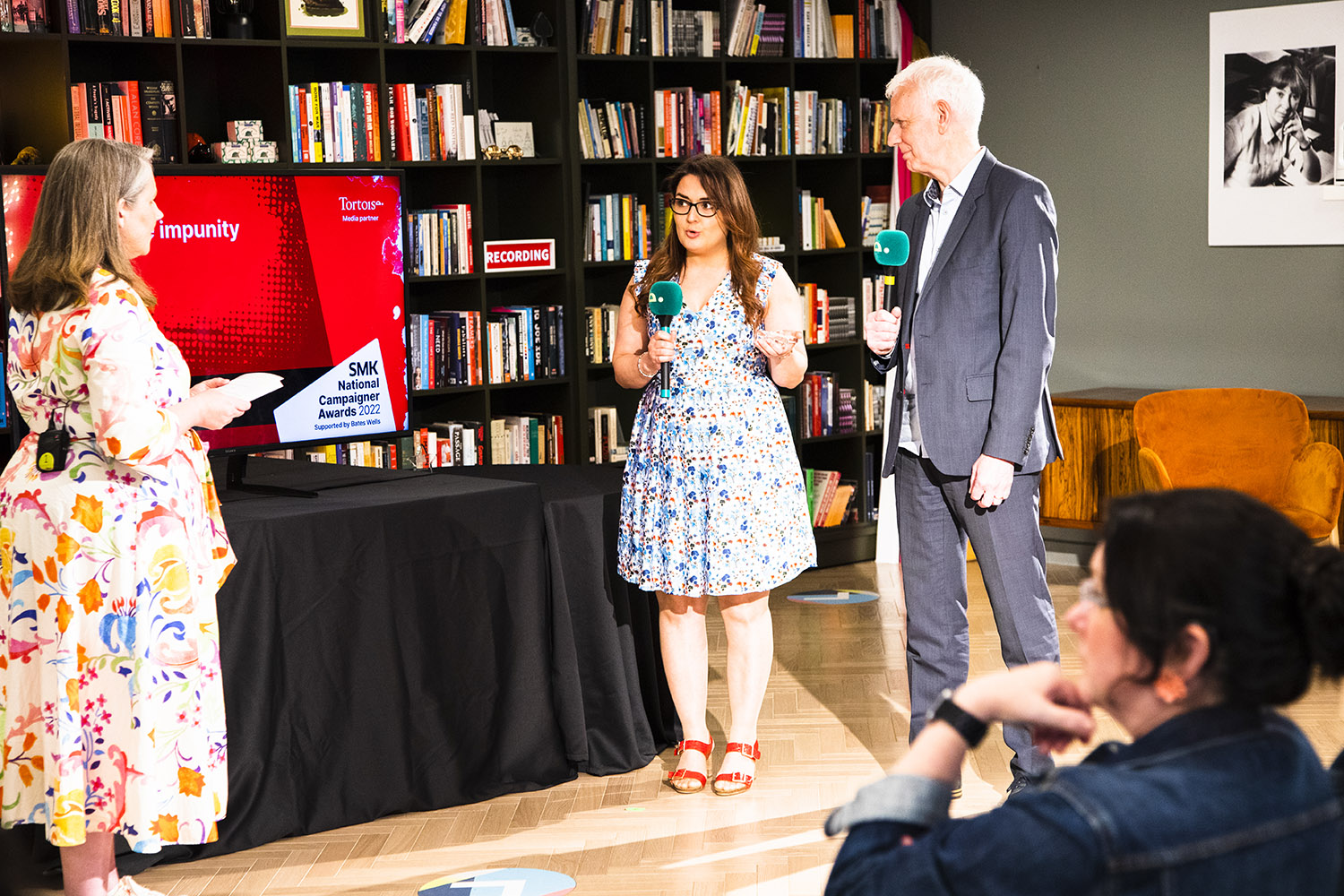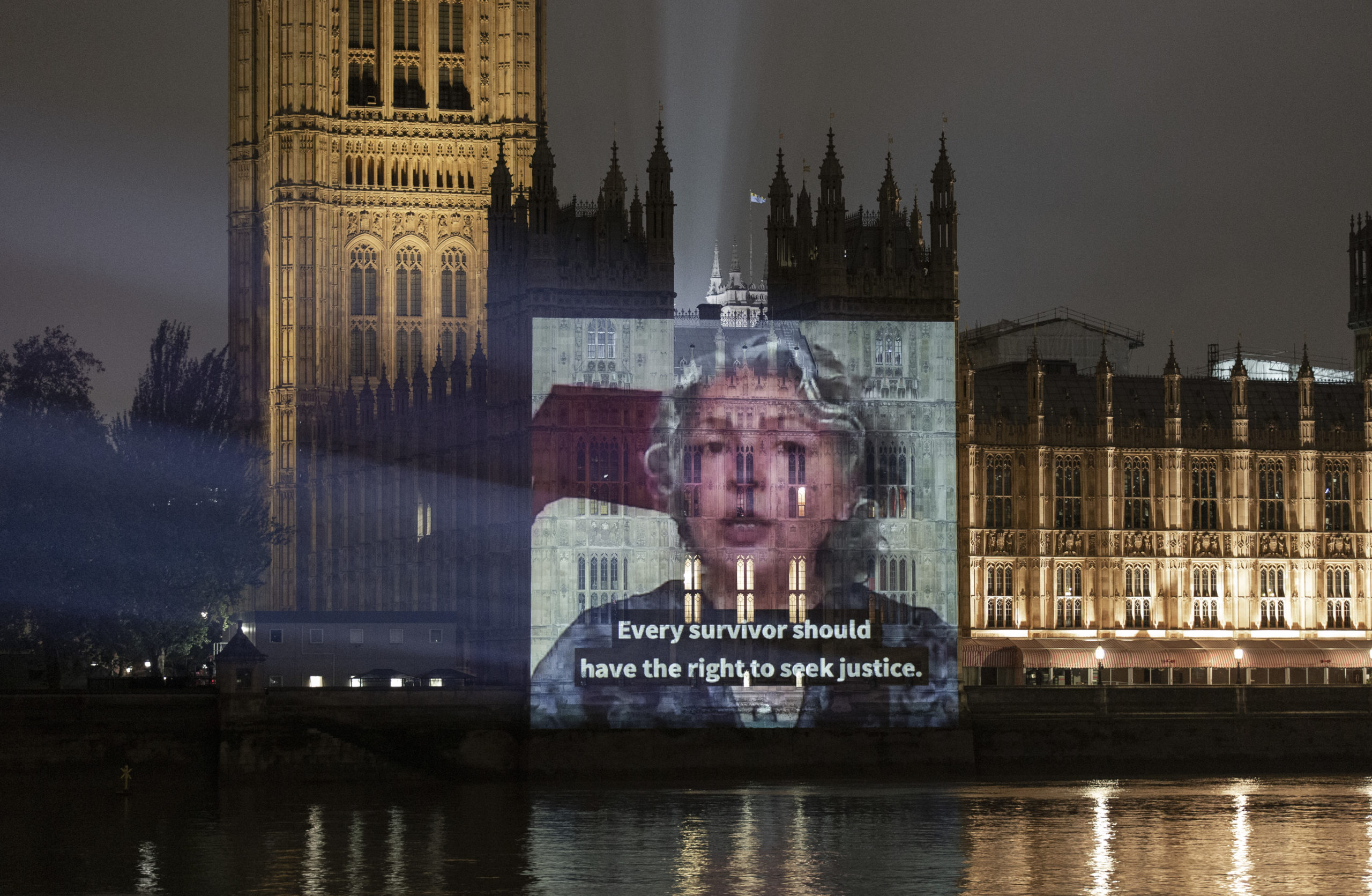
“We must all make sure that we never come this close to decriminalising torture again.” Kolbassia Haoussou, Director of Survivor Empowerment at Freedom from Torture
The Campaign
Freedom from Torture and the Survivors Speak OUT network coordinated a campaign to remove torture, war crimes and crimes against humanity from the impunity provided by the Overseas Operations Bill. The legislation, with its ‘presumption against prosecution’, would have protected British armed forces personnel from allegations of acts of torture and other war crimes committed abroad more than five years earlier.
The campaign was co-designed with torture survivors and worked with a broad coalition of NGOs, bringing together former generals, bishops, legal experts, and MPs. Many thousands of supporters engaged with the campaign, signing petitions and writing letters to their local MPs.
To keep messaging focused and stage a multi-pronged attack on Government positions, resources were pooled. A succession of opinion pieces and letters to newspaper editors came from campaigners, survivors and leading legal, former military and defence figures, opening the door for other politicians and veterans to speak out.

Freedom from Torture/POW
It is an extraordinary honour to be shortlisted for this award. The victory was a reminder of how seemingly unwinnable victories can sometimes be won – with enough energy and enough allies along the way.”
Steve Crawshaw, Policy and Advocacy Director, Freedom from Torture

Freedom from Torture/POW
It is an extraordinary honour to be shortlisted for this award. The victory was a reminder of how seemingly unwinnable victories can sometimes be won – with enough energy and enough allies along the way.”
Steve Crawshaw, Policy and Advocacy Director, Freedom from Torture
The Change
The minister responsible for the Bill declined to meet with survivors, dismissing their concerns as ‘garbage’, but the campaign ensured that the legislation was not allowed to just sail through.
Shifting the narrative (the Bill was widely described as the ‘torture bill’) put the Government on the back foot, forcing it to constantly explain that it remained opposed to torture.
Despite an eighty-seat majority, the Government conceded on its impunity proposals after heavy criticism from Peers and human rights campaigners. The concession came a week after the House of Lords inflicted a defeat on the Government, with Peers expressing concern that the Government’s initial proposals would undermine Britain’s international reputation for upholding the rule of law.
Former NATO Secretary-General Lord Robertson praised Freedom from Torture’s role and said during the Lords debate that the Bill would have undermined ‘some of the most basic international legal standards for which this nation was renowned’. His amendment to exclude war crimes, including torture and crimes against humanity, from the proposed impunity provisions passed with a big majority. The strength of feeling in the Lords was such that the Government was obliged to back down.
The Future
The UK did not undermine the global torture ban, which would have set a dangerous precedent for other governments to follow, and victims of war crimes committed by British troops abroad will not automatically be denied access to justice after five years. Polling by Freedom from Torture indicates that the campaign raised awareness of torture among the public in the UK, with increased numbers of people believing torture is always wrong.
Who else was involved?
Torture survivors were at the heart of the campaign and it involved many people at Freedom from Torture and the Survivors Speak OUT network.
Allies included Reprieve, together with Amnesty International UK, Bingham Centre for the Rule of Law, Centre for Military Justice, Human Rights Watch, Liberty, Quakers, REDRESS and Rights and Security International.
The campaign engaged with the All-Party Parliamentary Group (APPG) on Drones, the APPG Rule of Law, the All-Party Human Rights Group (PHRG), and the Joint Committee on Human Rights

